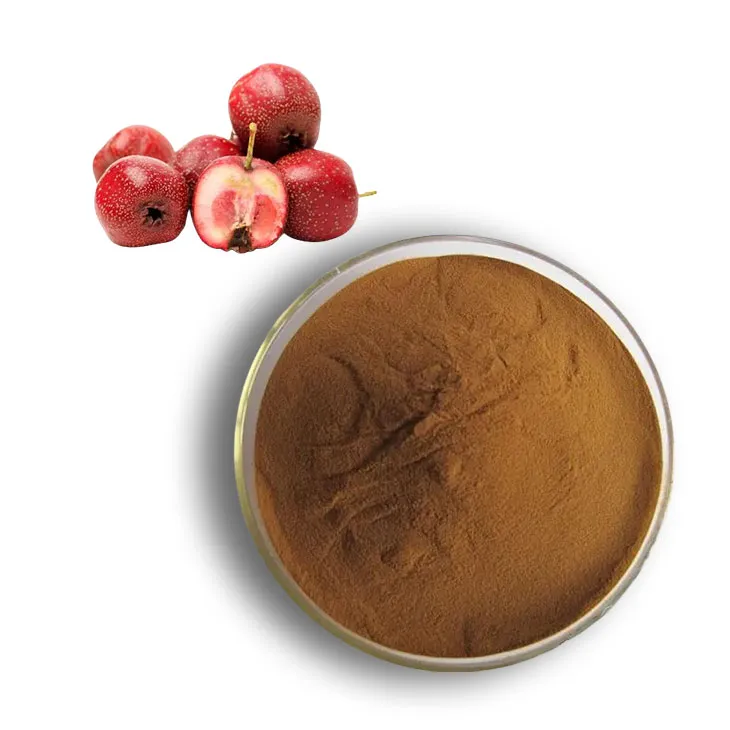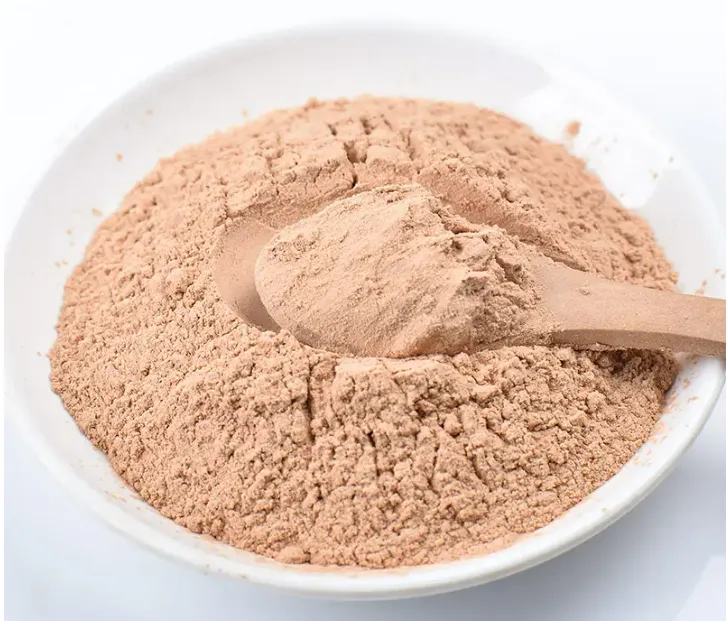- 0086-571-85302990
- sales@greenskybio.com
Five Efficacy of Hawthorn Extract + Dosage, Side Effects
2024-11-11

1. Introduction
Hawthorn Extract has been gaining increasing attention in the field of natural health remedies. Derived from the hawthorn plant, which has a long history of use in traditional medicine, this extract is believed to possess a variety of beneficial properties. In this article, we will explore five of its main efficacies, as well as discuss the appropriate dosage and potential side effects. This information is crucial for those who are health - conscious and interested in exploring natural ways to improve their well - being.

2. Efficacies of Hawthorn Extract
2.1 Cholesterol - Lowering
One of the significant efficacies of Hawthorn Extract is its ability to help lower cholesterol levels. Studies have shown that certain compounds in hawthorn extract can interfere with the absorption and synthesis of cholesterol in the body. Hypercholesterolemia, or high cholesterol, is a major risk factor for heart disease. By reducing cholesterol levels, hawthorn extract may contribute to a healthier cardiovascular system. It does this by interacting with enzymes involved in cholesterol metabolism. For example, it may inhibit the activity of HMG - CoA reductase, an enzyme that plays a crucial role in cholesterol biosynthesis. This inhibition can lead to a decrease in the production of cholesterol in the liver, ultimately resulting in lower overall cholesterol levels in the blood.
2.2 Improving Circulation
Hawthorn extract is also known for its positive effects on circulation. It helps to dilate blood vessels, which allows for better blood flow throughout the body. This dilation is due to the presence of flavonoids and other bioactive compounds in the extract. Improved circulation has numerous benefits. It can enhance the delivery of oxygen and nutrients to cells, tissues, and organs. This is especially important for the heart, as it needs a constant supply of oxygen - rich blood to function properly. Additionally, better circulation can help reduce the risk of blood clots, as it prevents blood from pooling in the veins. By promoting a healthy blood flow, hawthorn extract can contribute to overall cardiovascular health and may also have a positive impact on conditions such as varicose veins and peripheral artery disease.
2.3 Digestive Aid
Another important function of hawthorn extract is as a digestive aid. It can stimulate the secretion of digestive enzymes in the stomach and intestines. These enzymes are essential for breaking down food into smaller, more easily absorbable components. Hawthorn extract also has a mild laxative effect, which can help prevent constipation. It can regulate the motility of the digestive tract, ensuring that food moves through the system at a proper pace. This is beneficial for those who may experience digestive issues such as indigestion, bloating, or slow digestion. By improving digestive function, hawthorn extract can enhance the body's ability to absorb nutrients from food, which is crucial for overall health and well - being.
2.4 Antioxidant Properties
Hawthorn extract is rich in antioxidants. Antioxidants are substances that can neutralize harmful free radicals in the body. Free radicals are unstable molecules that can cause damage to cells, proteins, and DNA through a process called oxidation. This oxidative damage has been linked to various diseases, including cancer, heart disease, and neurodegenerative disorders. The antioxidants in hawthorn extract, such as flavonoids, phenolic acids, and proanthocyanidins, can scavenge free radicals and prevent them from causing damage. By reducing oxidative stress, hawthorn extract may play a role in preventing the development of chronic diseases and may also have anti - aging effects, as it helps to protect cells from damage and maintain their normal function.
2.5 Anti - Inflammatory Effects
Hawthorn extract has demonstrated anti - inflammatory properties. Inflammation is a natural response of the body to injury or infection, but chronic inflammation can be harmful and is associated with many diseases, such as arthritis, diabetes, and cardiovascular disease. The anti - inflammatory compounds in hawthorn extract can modulate the body's immune response and reduce the production of inflammatory mediators, such as cytokines and prostaglandins. This can help to alleviate inflammation in the body and may be beneficial for those with inflammatory conditions. For example, in arthritis, hawthorn extract may help reduce joint pain and swelling by reducing inflammation in the affected joints.

3. Dosage of Hawthorn Extract
The appropriate dosage of hawthorn extract can vary depending on several factors, such as the form of the extract (e.g., capsules, tablets, tincture), the purpose of use, and individual health conditions.
- For general cardiovascular health support, a common dosage is around 160 - 900 mg per day of a standardized hawthorn extract. This can be taken in divided doses throughout the day.
- If using hawthorn extract for a specific condition, such as high cholesterol or digestive issues, it is advisable to consult a healthcare professional. They may recommend a different dosage based on the severity of the condition and other individual factors.
- When using hawthorn tincture, a typical starting dose might be 1 - 2 mL, three times a day. However, this should also be adjusted according to individual response.

4. Side Effects of Hawthorn Extract
While hawthorn extract is generally considered safe for most people, there are some potential side effects to be aware of.
- Some individuals may experience mild gastrointestinal discomfort, such as nausea, stomach upset, or diarrhea. These symptoms are usually rare and tend to be mild when they do occur.
- In rare cases, hawthorn extract may cause allergic reactions in people who are sensitive to the plant. Symptoms of an allergic reaction may include rash, itching, swelling, or difficulty breathing. If any of these symptoms occur, immediate medical attention should be sought.
- Hawthorn extract may also interact with certain medications. For example, it may enhance the effects of blood - thinning medications, increasing the risk of bleeding. It is crucial to inform your healthcare provider if you are taking any medications before starting to use hawthorn extract.
5. Conclusion
Hawthorn extract offers several potential health benefits, including cholesterol - lowering, improving circulation, aiding digestion, providing antioxidant protection, and having anti - inflammatory effects. However, it is important to use it at the appropriate dosage and be aware of the potential side effects. As with any supplement, it is advisable to consult a healthcare professional before starting to use hawthorn extract, especially if you have underlying health conditions or are taking other medications.
FAQ:
What are the five main efficacies of hawthorn extract?
The five main efficacies of hawthorn extract may include: Firstly, it can help lower cholesterol levels in the body, which is beneficial for cardiovascular health. Secondly, it may improve blood circulation, ensuring that blood can be transported effectively throughout the body. Thirdly, it might aid in digestion as it can stimulate the secretion of digestive juices. Fourthly, it could have antioxidant properties, protecting the body's cells from damage caused by free radicals. Fifthly, it may help regulate blood pressure within a normal range.
What is the proper dosage of hawthorn extract?
The proper dosage of hawthorn extract can vary depending on various factors such as the form of the extract (e.g., capsule, tincture), the individual's age, health condition, and the intended use. Generally, for a standardized hawthorn extract in capsule form, a common dosage might be around 100 - 250 mg taken two to three times a day. However, it is always best to consult a healthcare professional before starting any new supplement regimen to ensure the dosage is appropriate for you.
Are there any side effects of hawthorn extract?
While hawthorn extract is generally considered safe for most people when taken as directed, some possible side effects may occur. Mild digestive issues such as nausea, stomach upset, or diarrhea can happen in some cases. In addition, it may interact with certain medications, especially those for heart conditions or blood pressure. For example, it could potentiate the effects of some medications, leading to overly low blood pressure or heart rate. People with bleeding disorders should also be cautious as it may increase the risk of bleeding in some rare cases.
Can hawthorn extract be used by people with heart diseases?
It can be used by some people with heart diseases, but under the supervision of a doctor. Hawthorn extract may have beneficial effects on heart health, such as improving blood circulation and helping to regulate blood pressure, which are important aspects for heart disease patients. However, due to its potential interactions with medications used for heart diseases and its possible effects on heart rate and blood pressure, it is crucial that a healthcare provider is involved in the decision - making process.
Is hawthorn extract suitable for vegetarians?
Yes, hawthorn extract is usually suitable for vegetarians. Since it is derived from hawthorn fruits, which are plant - based, it does not contain any animal products. However, it is still important to check the product label to ensure that no non - vegetarian additives or processing methods have been used.
Related literature
- The Efficacy and Safety of Hawthorn Extract in Cardiovascular Health"
- "Hawthorn Extract: Dosage, Benefits and Potential Risks"
- "A Comprehensive Review of Hawthorn Extract's Pharmacological Properties"
- ▶ Hesperidin
- ▶ citrus bioflavonoids
- ▶ plant extract
- ▶ lycopene
- ▶ Diosmin
- ▶ Grape seed extract
- ▶ Sea buckthorn Juice Powder
- ▶ Beetroot powder
- ▶ Hops Extract
- ▶ Artichoke Extract
- ▶ Reishi mushroom extract
- ▶ Astaxanthin
- ▶ Green Tea Extract
- ▶ Curcumin Extract
- ▶ Horse Chestnut Extract
- ▶ Other Problems
- ▶ Boswellia Serrata Extract
- ▶ Resveratrol Extract
- ▶ Marigold Extract
- ▶ Grape Leaf Extract
- ▶ blog3
-
Cranberry Plants and Skin - care Products.
2024-11-11
-
Saw Palmetto Extract
2024-11-11
-
Angelica sinensis extract
2024-11-11
-
Centella Asiatica Extract
2024-11-11
-
Curcumin Extract
2024-11-11
-
Hesperidin
2024-11-11
-
Diosmin
2024-11-11
-
Lycopene
2024-11-11
-
Fig Extract
2024-11-11
-
Coconut Water Powder
2024-11-11
-
Black Pepper Extract
2024-11-11





















